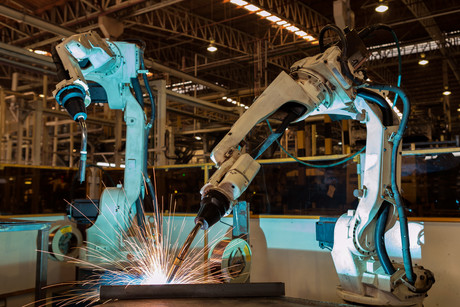AMGC reports how to build resilience in Australian manufacturing

According to the latest report from the Advanced Manufacturing Growth Centre (AMGC), Australia is currently home to one of the most volatile manufacturing industries in the world. Opportunities for companies to protect themselves against economic ups and downs is the topic of the report, Building Resilience in Australian Manufacturing.
Resilient firms are defined as those that outperform their industry in a downturn, and with higher than average earnings. The report identifies three strategies for building resilience and how manufacturing leaders can use these approaches for continuing success.
“The AMGC’s Sector Competitiveness Plan identified ways to drive competitiveness for Australian manufacturers, but there was an ingredient we found that needed to explain long-term performance, namely resilience,” said AMGC Managing Director Dr Jens Goennemann. “Instead of seeing parts of Australia’s manufacturing base being wiped out in the next downturn, let’s rather learn how some of our manufacturers adapted and survived in such times of contraction.”
From 1996 to 2015, the period examined by the report’s researchers, and even without a recession, the manufacturing sector expanded to above and below 20% of its trend size. In other words, average output across Australian manufacturing sub-industries has swelled to 20% above trend during economic upswings, while contracting to 20% below this level during downturns. This 20% deviation compares to 14% in the UK, 10% in the US and 8% in Germany.
For one in three Australian manufacturing businesses, the loss of one customer would have a moderate to significant impact on their business. For one in 10 manufacturers, the loss of one customer would force their business to shut down.
Building Resilience in Australian Manufacturing outlines what drives resilience, with 70% of resilient manufacturers exhibiting technical leadership, 64% producing a diverse product offering and 54% having business models that allowed for high flexibility.
Resilience is well demonstrated by some companies, with 26% of Australia’s most profitable manufacturers being the lowest performing after the global financial crisis. The characteristics of resilient manufacturers in this context are highlighted through the report’s case studies. One manufacturer, Sutton Tools, benchmarked themselves against the world’s best and decided to bolster its technical leadership through a dogged commitment to research and development.
“We stuck at it, not only for the pride of getting that product to successfully work, but more importantly what it did for all our other products and our manufacturing processes,” explained Managing Director Peter Sutton on their demanding but rewarding decade-long R&D project.
The report outlines three business factors driving resilience:
- Superiority: Superior firms possess an unassailable competitive advantage by offering technically superior products or services that are unique within the market, and highly valued irrespective of accompanying conditions.
- Diversity: Diversified firms possess a competitive advantage across many product segments, service offerings or geographically diverse export markets. This enables them to respond to shifting consumer tastes or reduced overall demand.
- Flexibility: Flexible firms possess an agile business structure allowing them to manage fluctuations in input costs or change industry focus in the event of a downturn.
The full report can be downloaded from the AMGC website: https://www.amgc.org.au/Story?Action=View&Story_id=59.
The Advanced Manufacturing Growth Centre is an industry-led organisation established through the Australian Government’s Industry Growth Centres initiative. The vision for the Advanced Manufacturing Growth Centre is to develop an internationally competitive, dynamic and thriving Australian advanced manufacturing sector that is critical to the long-term health of the economy and the nation.
Omron and Cognizant partner on IT–OT integration
Omron Corporation and Cognizant have announced they have signed a strategic partnership to...
Greensteel Australia to build next-generation steel mill
Greensteel Australia has announced it has placed an order to purchase equipment for its...
Researchers design water filter that removes PFAS molecules
Researchers at Monash University have developed a water filtration membrane that effectively...








